The World of Work: Our Top Predictions for 2023
- 5 Jan 2023
- 5 mins read
- Posted in
Content:
1. Businesses replacing full-time employees with contract workers
2. Talent management platforms will become a must-have
3. Cementing hybrid and remote work policies
4. Sharper focus on mental health and work-life balance
5. Driving ROI from tech will become a key focus
6. More focus on deliverables over hours
In keeping with the last 2 years, 2022 has been eventful indeed. This year saw some truly momentous global events.
The world navigated the post-pandemic landscape, with most countries opening up their economies, removing mask mandates and easing travel protocols. Before any sense of ‘normalcy’ could resume, we saw war break out in Ukraine, followed by other global fallouts like economic slowdown and the looming recession.
On the work front, we witnessed the Great Resignation where employees showed an unprecedented tendency to walk away from jobs and situations that did not align with their goals. This was followed by the more subtle phenomenon of ‘quiet quitting’.
So how will all of this affect the world of work in the coming year? Here are our top predictions for 2023.
1. Businesses replacing full-time employees with contract workers
The economic uncertainties and the fear of recession have already prompted companies to practice cost-cutting measures – and this includes reducing spends on the workforce. 85% of companies in the US are practicing hiring freezes during the ongoing economic downturn. The final quarter of 2022 also saw major layoffs – with 2.12 million people in the business and professional services sectors in the US alone, experiencing job losses.
This is likely to continue in 2023, with companies hesitating to make long-term commitments like permanent hires until the economy becomes more stable. However, businesses still need to continue performing. This will subsequently create a greater demand for skilled contract and freelance workers. According to one survey, 78% of leaders reported a preference for hiring freelancers and external workers rather than full-time employees in the present scenario.
Another factor that is sure to contribute to this trend is the fact that a lot of workers who have been laid off are professionals whose skills remain relevant across geographies and industries. For instance, the tech industry saw some of the biggest layoffs this year as companies like Twitter, Meta, Amazon and Salesforce announced reduced headcount across their global workforce. With so many highly trained workers looking for employment, many of them will turn to contracting.
2. Talent management platforms will become a must-have
With freelance and contract work becoming more mainstream, the way employers find and manage talent will also become more sophisticated.
Despite how critical external workers are to business success, this is one segment of the workforce that remained under-managed, right up until 2022. Many companies reported having little visibility on how many external workers they engaged, and only 35% of organizations said they had the right technology needed to manage them. This has huge fallouts, both in terms of work delivered as well as financially. For example, 1 in 4 projects that organizations source to service providers, goes over budget or is not completed on time. In the current economic environment, very few organizations can afford to continue working in this way.
This year will thus see freelancer management platforms gain more prominence. 90% of leaders already consider such platforms crucial to maintaining their organization’s competitive edge. In 2023, these platforms will not just enable employers to source the right talent, but also offer data-driven operational intelligence that will allow them to function in a smarter, more cost-effective way.
The digital talent space is seeing a lot of interest from VCs, and subsequently, we are already noting incredible innovation in this domain, even as 2023 begins. Employers are already starting to enjoy advantages like access to pricing-related intelligence, productivity metrics, AI-driven project scoping and budgeting assistance, data-based work strategies and review processes, and more. These innovations are only going to get smarter and more widely adopted as the year progresses.

3. Cementing hybrid and remote work policies
By the end of 2022, both employers and employees have experienced the benefits of remote work – with cost savings being a major consideration. In fact, according to one survey, 45% of workers reported saving over $5,000 a year, with reduced expenses on commute, fuel, food and other costs associated with working from an office. About 1 in 5 workers put this number closer to $10,000 in savings.
This becomes doubly significant during a recession, and not many are willing to give up this advantage. A lot of companies that are making it mandatory for their workers to work from the office are losing out on skilled talent – and their future-focussed competitors are quick to snap them up.
Smart organizations will thus put in more effort to create greater scope for hybrid and remote work. This will go beyond just the experimental phase of allowing people to work from home sometimes. We are sure to see more structured remote work policies that will take into account the realities of this setup – for instance, who will work from which location, how much company real estate businesses will have to invest in, how will company culture be implemented and more. We can also expect to see the emergence of roles like Chief Remote Officers, who will facilitate and design companies’ remote strategies.
4. Sharper focus on mental health and work-life balance
The last couple of years have driven home the importance of factors like fitness, family, leisure time and mental health – and we are seeing a stark shift in people’s priorities already. Employees are no longer valuing work above everything else, and they are less likely to accept unreasonable pressures in terms of efficiency and productivity. Subsequently, in 2023, they will look for workplaces that make space for this.
Twitter recently experienced this first hand. After laying off a huge percentage of their global workforce, the rest of the employees were asked to agree to a more intense workload in the coming days. Even in this time of economic uncertainty, most of them chose to resign instead.
Thus, the businesses that will get ahead in 2023 will be the ones that invest in better policies, and more mental health facilities. Moreover, they will design these policies keeping the needs of a distributed workforce in mind. For instance, an in-office gym or a health food bar will no longer cut it – employers will now need to ensure that they provide equivalent offerings to their remote employees too.
5. Driving ROI from tech will become a key focus
At a time when labor comes at a premium cost, companies are seeing the value of putting their top talent towards innovation and business expansion goals, rather than manual and repetitive tasks. Tools and software available in the market will get more sophisticated in order to accommodate this.
We predict 2023 will see even more tasks like invoicing, workforce data and accounting entries (budgets, expenses etc.) getting automated with the help of the right technology. We already see this happening today – TalentDesk, for example, has advanced features that generate worksheets, streamline invoices, create audit trails and so on. These features are designed specifically to help businesses save time and money, giving managers the bandwidth to devote more time to the strategic aspects of the business.
6. More focus on deliverables over hours
With flexible work becoming the norm, employers are quickly learning to value the targets met and the quality of the work delivered, over outdated parameters like the number of hours worked. Now, they are going to have to experiment and innovate so they can offer the best options to their workforce. Workers too, will develop their own preferences and be able to make an informed choice about which flexible policy works for them.
For example, many countries have already started exploring 4-day workdays. Now, employers in these countries will need to figure out how this would fit in with their business and HR strategies. Will the workers be expected to take on their current 5-day workloads within 4 days? If so, what implications would this have on employees’ mental and physical health?
Further, we will also see the evolution of technology associated with flexible work. For example, one survey shows that 60% of businesses have already embraced ‘bossware’ – software that tracks remote and flexible workers’ productivity through various means like monitoring mouse movements, keystrokes, screenshots and more. In 2023, we will learn more about the implications of this on factors like employees’ mental health, team morale and privacy concerns.
Do you agree with our predictions for 2023? How are you preparing for these changes as an organization?

Sanhita Mukherjee
Tags
Speak to us to find out how we can help you avoid hire contractors efficiently
Related articles
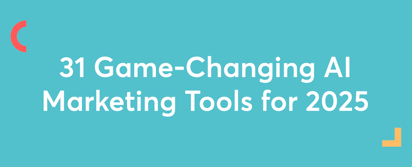
31 Game-Changing AI Marketing Tools for 2025
Discover 31 game-changing AI marketing tools – from automation to personalization, these tools will revolutionize your campaigns and boost efficiency.

Why Businesses Should Invest in AI or Risk Getting Left Behind
Discover why investing in AI is essential. Explore the benefits of automation, decision-making, and staying competitive in an AI-driven future.
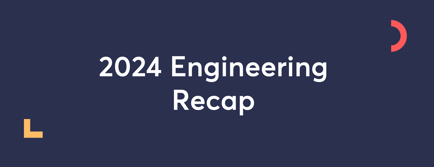
2024 Engineering Recap
See how we enhanced features and added automation in 2024 to improve TalentDesk user experience. Here's a full recap and a look ahead to 2025.
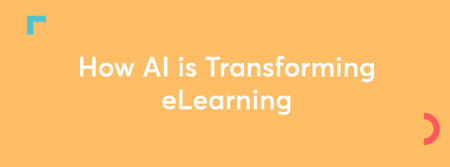
How AI is Transforming eLearning
See how AI is transforming eLearning with personalized experiences, content, and predictive analytics, enhancing education for students and teachers alike.
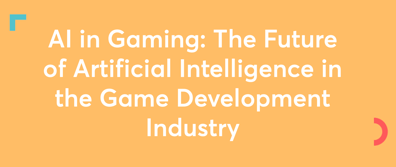
AI in Gaming: The Future of Artificial Intelligence in Game Development
The ultimate guide to AI in the gaming development industry. Learn how Artificial Intelligence is revolutionizing NPCs, game design, and player experiences.
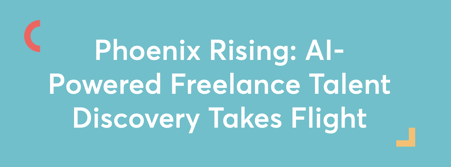
Phoenix Rising: AI-Powered Freelance Talent Discovery Takes Flight
Discover Phoenix: the AI-powered assistant revolutionizing freelance talent discovery. Connect faster, smarter, and more securely with top freelancers.
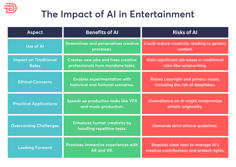
Revolution or Disruption? The impact of AI in Entertainment & Media
Revolution or disruption? Our comprehensive article explores the risks & benefits of AI in entertainment & media. Read key industry insights and opinions.
Why AI Can't Replace Freelancers and Take Over Jobs
Why AI Can't Replace Freelancers and Take Over Jobs
Artificial intelligence tools like Chat GPT have people thinking their jobs are over, but AI can't replace human creativity & originality of a copywriter.
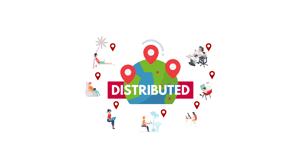
What is a Distributed Team and how do you manage them?
Managing a distributed team can be a very complex task. The suite of distributed team management tools from TalentDesk can make this much easier!
Contingent Workforce Solutions
Contingent workforce solutions: How can they enable success in the new world of work?
This is a comprehensive guide on contingent workforce solutions. Learn best practices for success from our guide to implementing your strategy.
